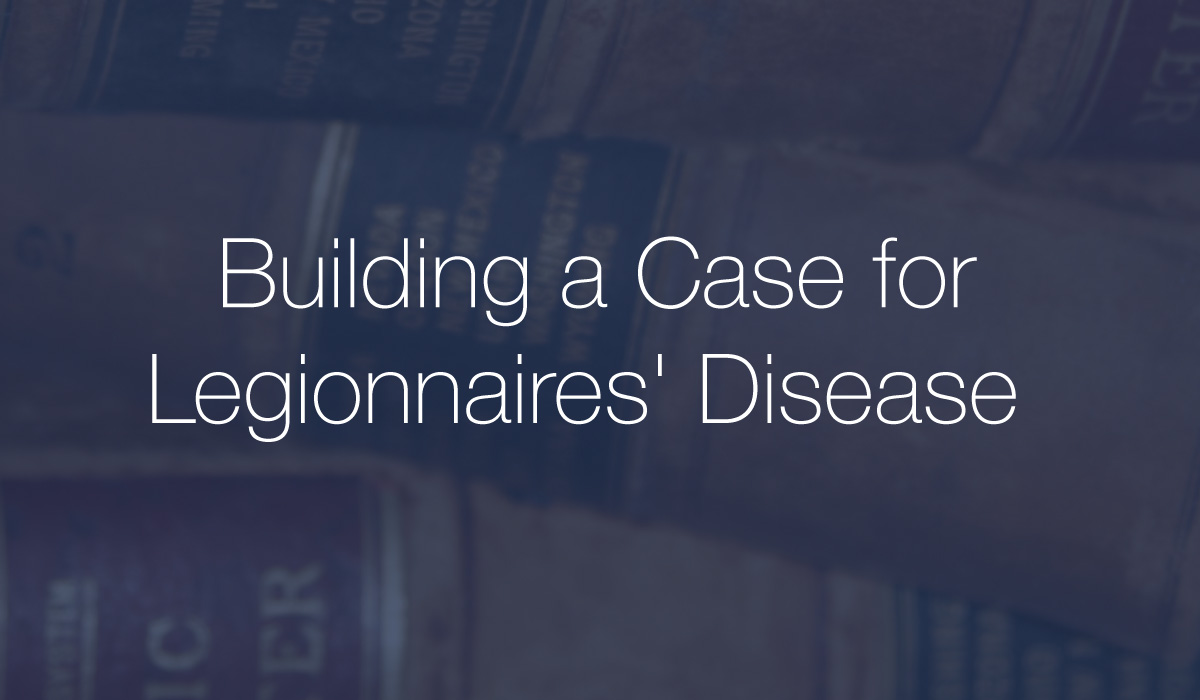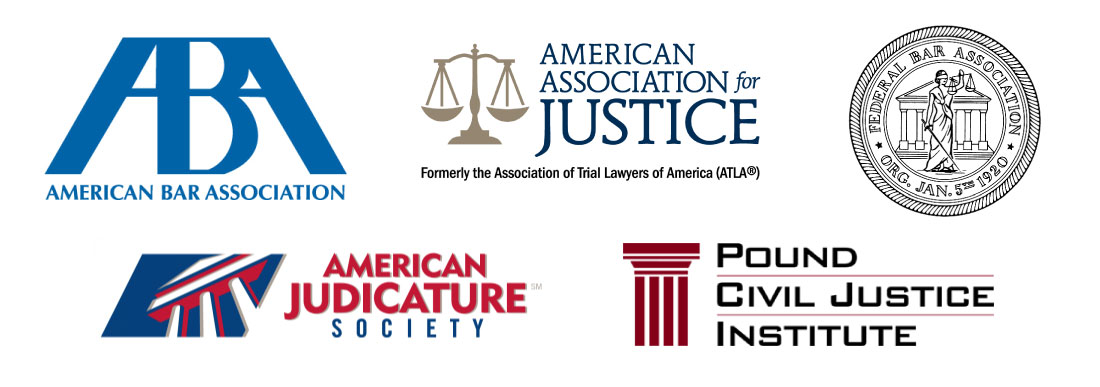Building a Case for Legionnaires’ Disease
If you believe that you or a family member has been exposed to the legionella bacteria that cause Legionnaires’ disease, your first call should always be to your doctor. Legionnaires’ disease can result in very serious illness, including respiratory and lung failure, septic shock, kidney failure, endocarditis (an infection of the inner lining of the heart chamber and valves), pericarditis (inflammation of the fibrous sac surrounding the heart) and even death. Victims who survive the disease may have permanent damage to their lungs, heart and other organs.
But after you call your doctor, your next call should be to a lawyer who has experience with personal injury cases in general and legionnaires’ disease claims specifically, because you may be entitled to sue for: damages for injuries due to the disease; compensation for pain and suffering; reimbursement for medical costs and hospital stays; reparation for lost wages; and/or damages for wrongful death. The reason is that Legionnaires’ disease is preventable by making sure that the water sources in which the Legionella bacteria thrive are rigorously cleaned and disinfected.
The first step in building a case is to properly test and identify the source of the Legionniares’ infection. If it can be proven that a property owner or other party is negligent in cleaning those water sources and/or testing water for the presence of the Legionella bacteria, those parties can be held liable for negligence. In the past, those parties have included property owners, cleaning companies, general contractors, architects and engineers, plumbers, water heater manufacturers, employers, hospitals, health clubs, spas, hotels, prisons, assisted living facilities, and other large institutional facilities.
The Discovery and Litigation Process
The first action that your attorney will make will be the filing of a complaint in the appropriate court, against the party alleged to have been negligent. The defendant in question will have the opportunity to answer the complaint and file preliminary objections. The next phase is discovery. Written questions, or interrogatories, are asked, under oath, to various parties and witnesses. Depositions, which are verbal questions, may also be asked. The normal court process will proceed with various conferences among your attorney, the attorney for the defendant, and any representatives from the insurance company that the defendant may have contracted to cover any claims. If a settlement is not reached during this stage of litigation, the case may go to trial.
Preparing for Trial
At this point, your attorney will have already amassed evidence by subpoenaing your medical records, as well as any records, files, contracts, documents, etc. the defendant may have that will help him or her prosecute your case. Your attorney is going to have to prove that the defendant was, indeed, negligent and that the contracting of Legionnaires’ disease could have been prevented had he or she acted in a reasonable manner by adhering to statutes, guidelines, and/or recommendations issued by a local health department, other government agency, or professional association, to protect the users of his or her premises from harm. By not adhering to those guidelines, recommendations, etc., the defendant failed to keep those premises safe from the conditions that could cause a Legionnaires’ disease outbreak.
In legal language, the following questions will have to be answered in the affirmative before damages can be awarded:
- Does the defendant owe a duty to the injured person?
- Is the injured person’s status appropriate for recovery under the law?
- Has the duty owed the injured person by the wrongdoer been breached?
- Was it reasonably foreseeable that harm would be suffered by the injured person if this breach occurred?
- Did the injured person suffer damages?
During the trial, your attorney will also have the opportunity to question experts. He or she will also need to secure the scientific evidence proving that the Legionella bacteria was present in the area that you or another victim of the disease had frequented, and that the disease could only have been caught at that particular time and place.
Can Negligence be Proven?
Proving negligence is certainly not a slam dunk, but it can be done. In any negligence action, the plaintiff has the burden of presenting evidence that a “standard of care” has been violated and that there is a causal relationship between the violation and the harm complained of. Common theories of negligence regarding Legionnaires’ disease include:
- Failure to maintain water distribution systems properly to prevent the growth of the Legionella bacteria
- Failure to set and maintain hot water storage temperatures in a range sufficient to eliminate or control the growth of the bacteria
- Failure to ensure proper chlorination of a water supply
- Failure to periodically flush water systems to eliminate sediment and other contaminants
- Failure to maintain proper water flow throughout a potable water system
At present, some courts have not accepted any of the above theories as a violation of the acceptable “standard of care” that owners of a property must adhere to regarding the protection of persons who sue for damages in Legionnaires’ disease suits. But other courts have, and in some cases, damage awards have been substantial. Make sure that your attorney explains all of the possibilities to you, so that you understand that, in some cases, negligence cannot be proven and damages may not be awarded.
The good news is that, most of the time, these types of cases are taken on a contingency basis. That means that your attorney will bear the costs of litigation and trial, and only be compensated if and when your case is decided in your favor and damages are awarded.
We stand ready to aid you in all phases of your Legionnaires’ disease lawsuit. Please call us for a free consultation

